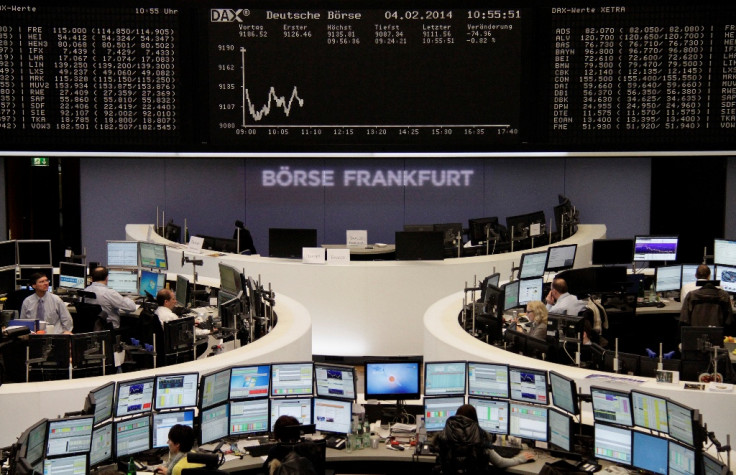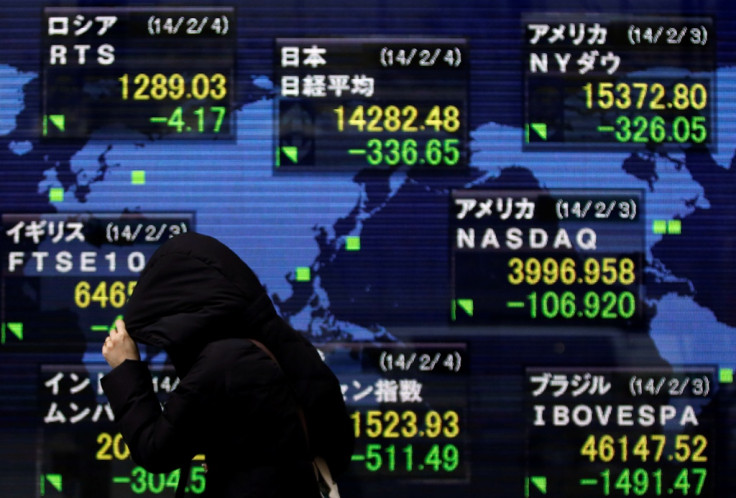World Shares Plunge Over US Slowdown and Emerging Markets Concerns

Global markets tumbled to a near four-month low on 4 February on signs the world's largest economy was stumbling, which further rattled investor sentiment following the sharp sell-off in emerging markets.
The pan-European FTSEurofirst opened 0.5% lower.
The MSCI's main emerging market index lost 1.4%, having plunged 12% over the last two months.
The MSCI's 45-country all world index fell to its lowest level since early October 2013.
Investors switched to traditional safe-haven assets such German and US government bonds and the Japanese yen, after the Institute for Supply Management (ISM) said on 3 February its index of US factory activity dropped to 51.3 in January, its lowest level since May 2013, from 56.5 in December 2013.
German government bonds, considered to be among Europe's most secure investments, saw prices hit a six-month high.
The stock market sell-off saw the VIX, broadly considered the best gauge of market volatility, jump to its highest since June 2013. It also boosted gold's safe-haven allure, with spot gold steady on the day at $1,258.84 an ounce, after gaining 1.1% on 3 February.
Among other professed safe assets, the yield on benchmark 10-year US Treasury notes stood at 2.604 in early European trading, after falling to 2.582%, their lowest since November 2013.
USD Weakness
Upbeat UK construction data left the sterling at $1.6340. Rumours of policy easing by the ECB later this week held the euro at $1.3509.
The Australian dollar jumped on 4 February, after the Reserve Bank of Australia left interest rates unchanged and said that further rate cuts were not on the cards.
However, the focus of the forex markets remained the US dollar's waning influence over the yen.
The greenback's overnight depreciation provided some relief to emerging market currencies. The Turkish lira, the Russian rouble, the Hungarian forint and the South African rand gained.
"It does look as if developed market equities are playing catch up with emerging markets," said Societe Generale strategist Kit Juckes.
"The dollar has somewhat run out of steam and I suspect the focus today may well be on yen strength as well as how much further the equity market falls can go," Juckes told Reuters.
10% Correction
"With the main European indices down around 7% (since peaks), chatter on trading desk is about whether we are in for a '10%' correction," said Jonathan Sudaria, a dealer at Capital Spreads in London.
"The bears have a seemingly easy target within reach and the remaining bulls will want to get out of the way," Sudaria told the news agency.
"Experienced emerging market investors would be looking at this sell down with great interest, looking to pick up quality names on the dip, but they are still in the minority for now," said Erwin Sanft, Standard Chartered's Hong Kong-based China equity strategist.
Societe Generale Cross Asset Research said in a note to clients: "On a valuation basis, EM Asia Equities appear to be in the early stage of a derating process that could intensify in the coming months. Given historical valuation levels, we think there is further scope for EM Asia equities to devalue."
"Then again, in the global context, Asia appears to be a strongly defensive market doing its best to resist the jitters and turmoil caused by fears related to US monetary policy tightening and an increase in US bond yields," the French bank added.
Asia and the US
The downbeat mood across Europe followed a torrid session in Asia, where the Japanese Nikkei lost over 4% following a sell-off on Wall Street, where indices shed over 2% after an industry report highlighted slowing factory activity in the US.

The Nikkei 225 share average finished 4.18% lower on 4 February. It remains the worst performing major market this year. The Nikkei had soared 57% in 2013 to its highest increase since 1972.
Financial markets in Shanghai were shut for the Lunar New Year holidays.
The US benchmark S&P 500 finished 2.28% lower on 3 February and is down 5.76% so far this year.
© Copyright IBTimes 2025. All rights reserved.


















